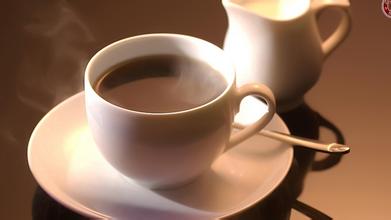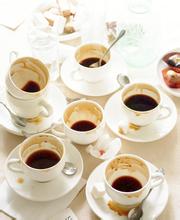Introduction to Atlanta Manor, Coffee Manor in Jamaica
In 1670, according to the Madrid Treaty, Spain formally ceded Jamaica and other places to Britain, and the British immediately used the island of Jamaica as a base for their acts of piracy. Before the earthquake destroyed the port of Loire in 1692, it once became the "capital" of Caribbean pirates. Since then, the British built Kingston and gradually built it into the central city of Jamaica.
Bamboo Forest Street, Jamaica
Bamboo Forest Street, Jamaica
In the 150 years after 1692, Jamaica became a world-famous producer of sugar, rum and coffee. [4] in order to maintain a large number of plantations, the Royal Africa Company was established in England in 1672.
After 1865, after another large-scale uprising, Britain declared Jamaica a colony under direct jurisdiction in 1866. At the end of the 19th century, the sugar industry in Jamaica gradually declined and was replaced by banana farming. In 1872, Kingston officially became the capital of Jamaica.
The scenery of Jamaica
The scenery of Jamaica
In the decades after 1872, Jamaica's economy gradually prospered, but its social and cultural development was always suppressed by the colonial authorities. Especially during the Great Depression, all walks of life in Jamaica were very dissatisfied with the depressed social situation. In 1938, workers in Jamaica revolted. After that, the colonial authorities were forced to grant local autonomy. In 1944, universal suffrage was first held in Jamaica.
In 1958, Jamaica joined the Union of the West Indies, but in 1961, voters rejected the Union Treaty, which led to Jamaica's withdrawal.
On August 6, 1962, Jamaica declared its independence and joined the Commonwealth after its independence.
On October 23, 2011, Andrew Holnis, the youngest prime minister in Jamaican history, was sworn in in Kingston, Jamaica.
The earliest "Jamaican Blue Mountain" refers to the coffee produced by "Warren Ford Farm" and "Silver Hill Farm", with the former of the best quality; today, the Jamaican Blue Mountain refers to coffee beans growing in the Blue Mountain area (more than 1000 meters high) east of Kingston, the capital of Jamaica. Now Mawei is the largest manor, its barrel is printed with M.B.C.F, and its products are often found in Taiwan. The quality control of the Blue Mountains in Jamaica is very strict, and the certification work is carried out by the government's "Coffee Industry Committee".
Coffee beans that generally grow at low elevations and other areas can only be called "Jamaican mountain beans" or "Jamaican waterwashed beans". Compared with the Jamaican Blue Mountains, they have a lot of flavor, but, these producing areas are twice the size of the real blue mountain areas, and the output accounts for 75% of the country's output, so when you buy Jamaican coffee, don't think you bought blue mountain coffee.
Because Jamaica Blue Mountain is so famous, there are fake Blue Mountain Coffee on the market, or simply called "Blue Mountain Coffee". It is basically a comprehensive product prepared by the store. there may not be a real Jamaican blue bean in it.
History editor
In 1717 King Louis XV of France ordered the cultivation of coffee in Jamaica for twenty years.
Blue Mountain Coffee
Blue Mountain Coffee (6)
In the mid-1970s, the Governor of Jamaica, Sir Nicholas Lloyd (Nicholas Lawes), imported Arabica seeds from Martinique and began to plant them in St. Andrew. To this day, St. Andrews is still one of the three major producers of Jamaican Blue Mountain Coffee, with the other two producing areas: Portland (Portland) and St. Thomas (St.Thomas). In eight years, Jamaica exported more than 375 tons of pure coffee. In 1932, coffee production reached its peak and more than 15000 tons of coffee was harvested.
In 1950, the Government of Jamaica established the Jamaica Coffee Industry Committee (the Jamaica Coffee Industry Board), which sets quality standards for Jamaican coffee and oversees the implementation of quality standards to ensure the quality of Jamaican coffee. The Commission awarded special official seals to raw and roasted coffee exported from Jamaica, which is the highest-level national coffee institution in the world. The origin of Blue Mountain Coffee is represented by Mavis Bank Coffee Factory (M.B.C.F), M.H.C.C.T., P.X.X.S.H., Wallenford Coffee Industry Association, St. John's Coffee Industry Association and J.A.S

Important Notice :
前街咖啡 FrontStreet Coffee has moved to new addredd:
FrontStreet Coffee Address: 315,Donghua East Road,GuangZhou
Tel:020 38364473
- Prev

Puerto Rico Coffee Manor Flavor and Taste characteristics Fine Coffee beans introduction to San Pedro Manor
On September 23, 1869, the people of Puerto Rico were in R. Under the leadership of Emmetrio Betons, an uprising (known as the voice of Larez in history) was carried out in the town of Larez, which announced the establishment of a republic on the 24th and was later suppressed by the Spanish colonial army. After a long struggle, Puerto Rico was finally granted local self-government by Spain. However, from then on, after the Spanish-American War, the island became
- Next

Flavor and taste characteristics of Jamaican Coffee Manor introduction to Silver Mountain Manor with fine coffee beans
Located in the northwest of the Caribbean Sea, Jamaica is an island country at 17.42 degrees north latitude and 18.31 degrees north longitude and 76.11 degrees to 78.22 degrees west longitude. [1] the island of Jamaica is 234km long from east to west and 82km wide from north to south, with a territorial area of 11420 square kilometers, of which the land area is 10991 square kilometers. To the east across the Strait of Jamaica, facing Haiti, about 140 kilometers north of Cuba. The third largest in the Caribbean
Related
- Does Rose Summer choose Blue, Green or Red? Detailed explanation of Rose Summer Coffee plots and Classification in Panamanian Jade Manor
- What is the difference between the origin, producing area, processing plant, cooperative and manor of coffee beans?
- How fine does the espresso powder fit? how to grind the espresso?
- Sca coffee roasting degree color card coffee roasting degree 8 roasting color values what do you mean?
- The practice of lattes: how to make lattes at home
- Introduction to Indonesian Fine Coffee beans-- Java Coffee producing area of Indonesian Arabica Coffee
- How much will the flavor of light and medium roasted rose summer be expressed? What baking level is rose summer suitable for?
- Introduction to the characteristics of washing, sun-drying or wet-planing coffee commonly used in Mantenin, Indonesia
- Price characteristics of Arabica Coffee Bean Starbucks introduction to Manning Coffee Bean Taste producing area Variety Manor
- What is the authentic Yega flavor? What are the flavor characteristics of the really excellent Yejasuffi coffee beans?

